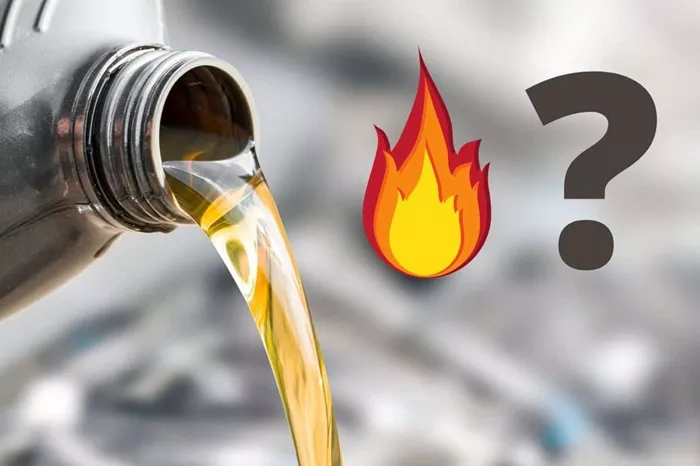Fuel oil, often used for heating and industrial purposes, is a crucial energy source. Its flammability is a significant concern for safety and operational efficiency. This article explores the flammability of fuel oil, its types, uses, safety measures, and more.
Types of Fuel Oil
Fuel oil comes in various grades, each with distinct characteristics and uses. The primary types include:
1.Residual Fuel Oil (Heavy Fuel Oil)
1.Used in large ships and power plants.
2.High viscosity and requires preheating for use.
3.Contains higher levels of sulfur and impurities.
2.Distillate Fuel Oil
1.Includes diesel and heating oil.
2.Lower viscosity and can be used without preheating.
3.Contains fewer impurities and sulfur.
Chemical Composition and Properties
Fuel oil is a complex mixture of hydrocarbons derived from crude oil. Its chemical composition includes:
Alkanes: Saturated hydrocarbons with single bonds.
Cycloalkanes: Saturated hydrocarbons with ring structures.
Aromatic Hydrocarbons: Contain one or more aromatic rings.
Sulfur Compounds: Varying amounts depending on the type of fuel oil.
These components influence fuel oil’s flammability, viscosity, and combustion properties.
Flammability of Fuel Oil
Flammability refers to the ability of a substance to ignite and burn. Several factors determine the flammability of fuel oil:
1.Flash Point
1.The lowest temperature at which fuel oil vapors ignite.
2.Varies between types; distillate fuel oil has a lower flash point than residual fuel oil.
2.Autoignition Temperature
1.The temperature at which fuel oil ignites without an external flame.
2.Typically higher than the flash point.
3.Combustion Characteristics
1.Involves the reaction between fuel oil and oxygen.
2.Efficiency depends on the oil’s composition and environmental conditions.
Safety Measures for Handling Fuel Oil
Given its flammability, handling fuel oil requires stringent safety measures:
1.Storage
1.Use appropriate tanks designed for fuel oil.
2.Maintain tanks in good condition to prevent leaks.
2.Transportation
1.Follow regulations for transporting hazardous materials.
2.Use secure, well-maintained containers.
3.Usage
1.Ensure proper ventilation in areas where fuel oil is used.
2.Keep ignition sources away from fuel oil.
4.Emergency Procedures
1.Train personnel in handling spills and fires.
2.Equip facilities with fire suppression systems.
Industrial Uses of Fuel Oil
Fuel oil is vital in several industries:
1.Power Generation
1.Used in power plants to generate electricity.
2.Residual fuel oil is commonly used due to its high energy content.
2.Shipping
1.Powers large marine engines.
2.Provides a reliable and efficient energy source.
3.Heating
1.Used in furnaces and boilers for heating buildings.
2.Distillate fuel oil, such as heating oil, is commonly used.
Environmental Impact
The use of fuel oil has environmental implications:
1.Emissions
1.Combustion releases pollutants, including sulfur dioxide, nitrogen oxides, and particulate matter.
2.Higher sulfur content in residual fuel oil leads to more significant emissions.
2.Regulations
1.Governments impose regulations to limit emissions.
2.Use of cleaner, low-sulfur fuel oils is encouraged.
Alternatives to Fuel Oil
Given environmental concerns, alternatives to fuel oil are being explored:
1.Natural Gas
1.Burns cleaner than fuel oil.
2.Reduces emissions of sulfur and particulate matter.
2.Renewable Energy
1.Solar, wind, and biomass are sustainable options.
2.Reduce dependency on fossil fuels.
3.Electric Heating
1.Efficient and reduces emissions.
2.Increasingly popular in residential and commercial applications.
See also: 5 Purpose Of The Fuel Oil Purifier
Technological Advances
Advancements in technology improve the efficiency and safety of fuel oil use:
1.Combustion Technology
1.Enhances the efficiency of fuel oil combustion.
2.Reduces emissions and operational costs.
2.Emission Control
1.Technologies like scrubbers and filters reduce pollutants.
2.Help meet regulatory standards.
3.Storage Solutions
1.Improved tank designs and materials enhance safety.
2.Reduce the risk of leaks and spills.
Economic Considerations
The cost of fuel oil and its alternatives affects its usage:
1.Market Prices
1.Fluctuate based on global oil prices.
2.Impact the cost of power generation and heating.
2.Cost of Alternatives
1.Renewable energy and natural gas can be cost-competitive.
2.Long-term savings from reduced emissions and maintenance.
Case Studies
Examining real-world applications highlights the role of fuel oil:
1.Power Plants
1.Fuel oil remains crucial for power generation in some regions.
2.Balancing efficiency, cost, and environmental impact is key.
2.Shipping Industry
1.Transitioning to low-sulfur fuel oils and alternatives.
2.Adapting to new regulations and technological advances.
3.Residential Heating
1.Fuel oil heating systems are common in colder climates.
2.Homeowners consider efficiency, cost, and environmental impact.
Conclusion
Fuel oil is indeed flammable, with its flash point and autoignition temperature defining its flammability characteristics. While it remains a crucial energy source, especially in power generation and shipping, safety measures and environmental considerations are paramount. Alternatives like natural gas and renewable energy are gaining traction, driven by technological advances and economic factors. Understanding the properties, uses, and impacts of fuel oil is essential for safe and efficient energy management.
Related topics:

